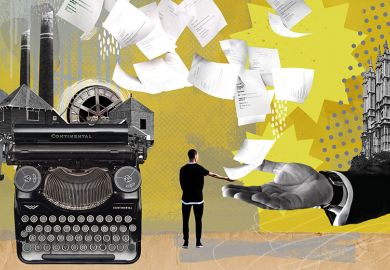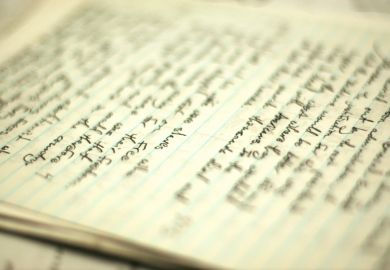Students who believe claims made by contract cheating websites that their essays are completely undetectable should think again, new research suggests.
In fact, academics at one Australian university were able to identify ghostwritten assignments in around two-thirds of cases, even when they were blind marking student work, according to a paper published in the journal Assessment & Evaluation in Higher Education.
In a small-scale study conducted by Deakin University researchers Phillip Dawson and Wendy Sutherland-Smith, seven experienced markers individually marked the same bundle of 20 second-year psychology papers, which included six that were purchased from essay mills.
While websites providing this service often guarantee that the provenance of their work is impossible to detect, university lecturers were “able to spot contract cheating most of the time", says the paper, titled “Can markers detect contract cheating? Results from a pilot study”.
In these circumstances, the essays written by cheating services, which are often penned by postgraduates or academics, were detected 62 per cent of the time.
The most common reasons for flagging the work as ghostwritten was that the essay “did not address key questions”, had a “poor structure”, had “missing sections” such as tables or figures, and showed a “lack of psychological theory”, says the paper, which said that some markers had a 100 per cent detection rate.
One marker commented that one essay’s “abundance of definitions and statistics, formal writing style [and a failure to follow] the assignment guide” were a clear giveaway that the submission had not been written by a psychology student.
Professor Sutherland-Smith, director of learning and teaching at Deakin's School of Psychology, said that students considering using essay mills should think again.
“Our results should provide some optimism to educators, policymakers and the public that in at least some circumstances it is possible to detect cheating at the time of marking,” she said.
The findings contrast with the results of an earlier study conducted at the University of New South Wales, which also asked academics to mark ghostwritten essays, believing that they were genuine student submissions. This concluded that the work of essay mills was "virtually undetectable" and often got high marks.
However, the Deakin research also presents several “practical difficulties” for academics who wish to call out would-be cheaters. In 4 per cent of cases, assignments submitted by genuine psychology students were flagged as being from contract cheaters. For some markers that margin of error was as high as 11 per cent, meaning one in 10 real student assignments “may be incorrectly flagged as being purchased”.
Register to continue
Why register?
- Registration is free and only takes a moment
- Once registered, you can read 3 articles a month
- Sign up for our newsletter
Subscribe
Or subscribe for unlimited access to:
- Unlimited access to news, views, insights & reviews
- Digital editions
- Digital access to THE’s university and college rankings analysis
Already registered or a current subscriber?




